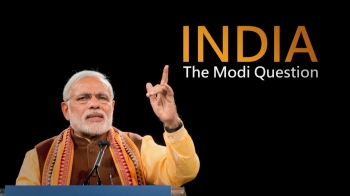
.png) Dr Suresh Mathew
Dr Suresh Mathew

The two-part BBC documentary India: The Modi Question has shaken the country to the extent that it has been made unavailable in India. The Central Government’s move to block news portal and social media links to the documentary has reinforced the fear that the government has skeletons in its cupboard to hide. The first episode has vignettes from Gujarat riots of 2002 in which, according to official figures, over 1000 people, mostly Muslims, were killed. The second one deals with evocative issues from the present era -- the Citizenship Amendment Act (CAA), Delhi riots of 2020, chilling details of assaults by cow vigilante groups, etc. -- vividly describing the troubled relationship between the Modi government and the Muslim community. While Mr. Modi was at the helm of affairs in Gujarat when the riots happened in the State, he is heading the Government at the Centre during the events described in the second episode.
One may be tempted to argue that the Supreme Court-monitored panel had cleared Mr. Modi of any wrong doing in Gujarat riots, but questions abound over the failure of the administration in reining in the frenzied mobs that roamed around, butchering hundreds. What makes the episode one unique is the scary details from a hitherto unseen report from the British Foreign Office which reportedly held Modi ‘directly responsible’ for the ‘climate of impunity’ that enabled the violence to continue without any impediments. The BBC accessed other memos by the British Government and Western diplomats which point a finger at the then state government for its complacency. This has probably put the British government on the backfoot. Prime Minister Rishi Sunak, while condemning the religious persecution, diplomatically told the Parliament that he did not agree with the characterization of Prime Minister Modi. The government of India has, meanwhile, come out with statements terming the documentary untrue and not based on facts.
The Modi regime’s intolerance to dissent and criticism is getting exposed time and again. It had not given censor exemption to a documentary on the life and time of Rohit Vemula, the Dalit scholar at Hyderabad Central University, who died by suicide; it had asked social media platforms to take down several posts during the farmers’ stir; it has put behind bars journalists and even cartoonists for writing against the government and caricaturing it in poor light; it has not even spared stand-up comedians as some of them were arrested on cooked up charges; human rights activists have been charged under Unlawful Activities Prevention Act (UAPA) for raising their voice for the Dalits and the marginalized. Thus goes the litany of the highhandedness of the government which seems paranoid about own image.
It is ironic that the Modi government used ‘emergency’ provisions to stop Indians from watching the BBC documentary while the leaders of the ruling Bhartiya Janata Party are the bitterest critics of the Emergency imposed by former Prime Minister Indira Gandhi. Moreover, several BJP leaders, including Mr. Modi, continue to harp on the excesses of the Emergency days, including harsh censorship of the media, to show the Congress party in poor light. Yet, the Central Government has no qualms in laying axe to the bedrock of democracy: free, critical media.